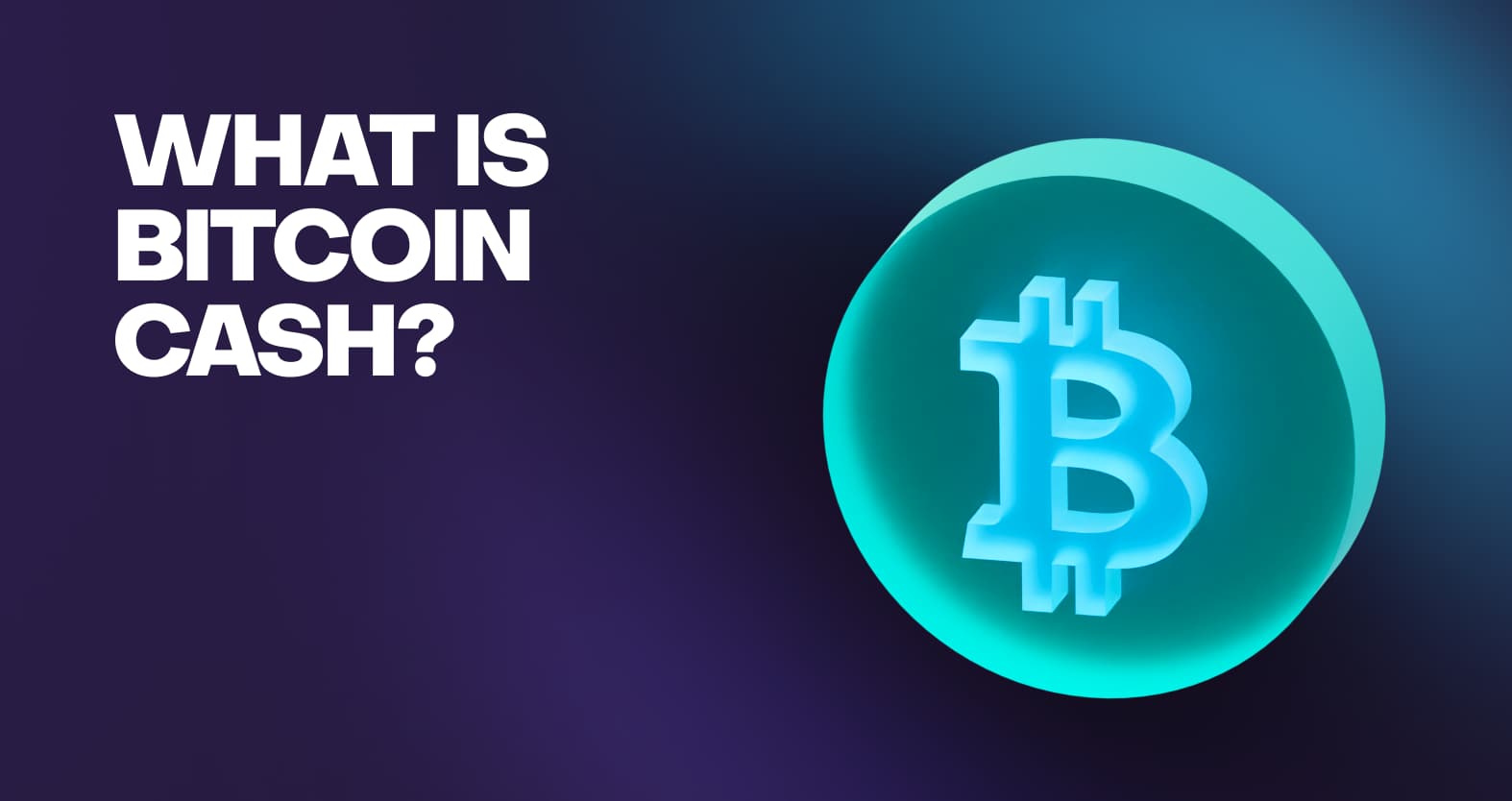
Table of contents
Table of contents
Bitcoin Cash: Carrying Out Satoshi Nakamoto's Vision For Sound Money
The open and decentralized nature of the Bitcoin protocol’s blockchain technology means that everyone can access the code base. Everyone has the opportunity to use the original code base to create a new chain. This is exactly how Bitcoin Cash (BCH) was born.
On August 1, 2017, the BCH coin was created via a hard fork and a chain split of the Bitcoin blockchain. Technically, Bitcoin Cash has existed since January 2009, and the chain includes all of Satoshi Nakamoto's transactions. Additionally, BTC wallets that existed before the chain split and hard fork occurred hold both BCH and BTC.
Today, the Bitcoin Cash (BCH) blockchain exists as its own independent network, operating completely separately from the Bitcoin (BTC) blockchain.
The History of Bitcoin Cash
The history of Bitcoin Cash all started with a community disagreement in the Bitcoin community over network block size and scalability options. A majority of the Bitcoin community thought that block sizes should remain unchanged, but a large subsection wanted to increase block sizes to increase transaction speeds and reduce costs. This group saw these as hurdles that prevented Bitcoin from becoming a viable cash alternative.
By verifying more transactions per block, transaction finality is faster and more cost-effective, but decentralization has to be put on the chopping block, as much more storage space is needed to host the entire distributed ledger as a network validator, leaving out many cryptocurrency miners. The majority of the Bitcoin camp saw this as a direct threat to genuine decentralization and thus did not want to enable larger blocks.
A solution was offered to the splintering community in the form of SegWit implementation. Although this solution increased transactional functionality as a layer two solution, the proponents of larger blocks did not think SegWit would increase network capacity enough. This group became known as the Bitcoin Cash community. Some large-scale miners, a few Bitcoin developers, and Roger Ver, the former CEO of Bitcoin.com helped back the hard fork.
BCH Vs. BTC
As a Bitcoin hard fork, Bitcoin Cash (BCH) still shares many of the same characteristics as its predecessor. They both have 21 million total coins that the networks will ever issue, with BCH one-to-one airdropped to all BTC holders at the time of the hard fork on August 1, 2017. Just like BTC, 92% of the max supply for BCH has already been mined as of April 2023.
They also run on the same Proof-of-Work (PoW) algorithm, SHA-256. On top of these commonalities, both cryptocurrencies have a 10-minute block time and both started with 50 BTC/BCH block rewards, featuring the same reward halving schedule every 210,000 blocks.
The main difference lies within the networks' block sizes, or how many transactions can fit inside a single block to be verified at once. Bitcoin has a block size of one megabyte, limiting the amount of data stored and verified every (approximately) ten minutes between new blocks. Initially, Bitcoin Cash started with a block size of 8 MB but has since upped it to 32 MB. The average transaction fee for BCH is far less than $0.01.
Buying and Selling Bitcoin Cash
Bitcoin Cash (BCH) is available to trade on many exchanges. As of May 2023, it is the 30th most valuable cryptocurrency by total market cap and has a daily trading volume of almost $150 million.
Like Bitcoin, which Bitcoin Cash supporters have dubbed 'Bitcoin Core', it is harder to buy, sell, or trade Bitcoin Cash (BCH) on decentralized exchanges, as it is mostly incompatible with smart contract platforms. With many of the top decentralized exchanges only hosting Ethereum-based ERC-20 tokens, Bitcoin Cash is essentially left out of most decentralized marketplaces. One Bitcoin Cash exchange that allows for cross-chain and blockchain-agnostic asset exchange is AtomicDEX, enabling anyone to easily buy, sell, or trade their BCH with many other native blockchain assets.
With the support of the BCH community, Komodo raised funds for the integration of the SLP token standard, which is native to the Bitcoin Cash blockchain network. If you are a trader who wants full control over your keys and your coins, a DEX like AtomicDEX could be the right choice. AtomicDEX offers the widest cross-chain/cross-protocol trading support of any DEX on the market. It supports numerous blockchain protocols, including both UTXO networks and EVM networks. Additionally, AtomicDEX supports smartBCH, a Bitcoin Cash sidechain that is capable of supporting up to 600 times the throughput of the Ethereum blockchain. Essentially, smartBCH offers an even cheaper and faster option for sending and receiving BCH.
Storing Bitcoin Cash
If you're looking for a Bitcoin Cash wallet, there are many centralized and decentralized crypto storage options. There are two popular wallets for BCH. The first is the Bitcoin.com wallet, cleverly using the moniker of Bitcoin (although some consider being confusing/misleading) to attract users to BCH. The second is the Electron Cash wallet. These are both hot wallets available on mobile and desktop, and both provide good options for users to send and receive BCH. As one of the largest cryptocurrencies, Bitcoin Cash also has many cold storage and hardware wallet options like Ledger and Trezor.
If you are looking for a software wallet to store and/or trade BCH as well as SLP tokens, look no further than AtomicDEX! It's available via web browser as well as downloadable mobile and desktop applications.




